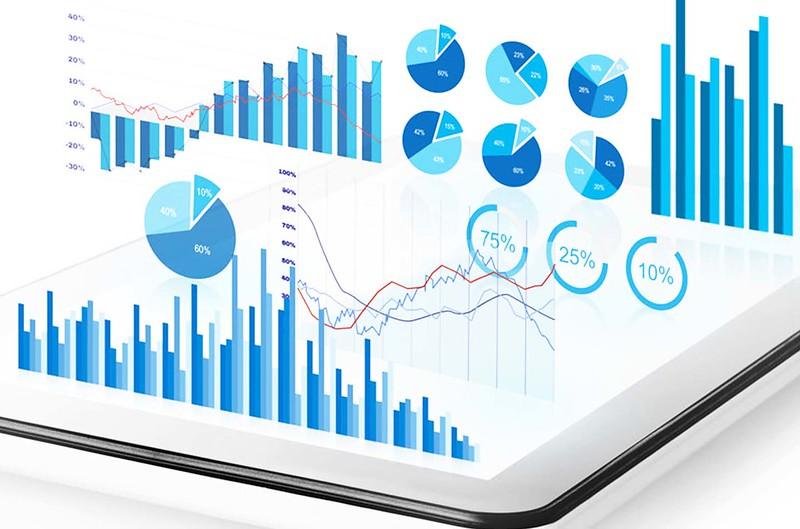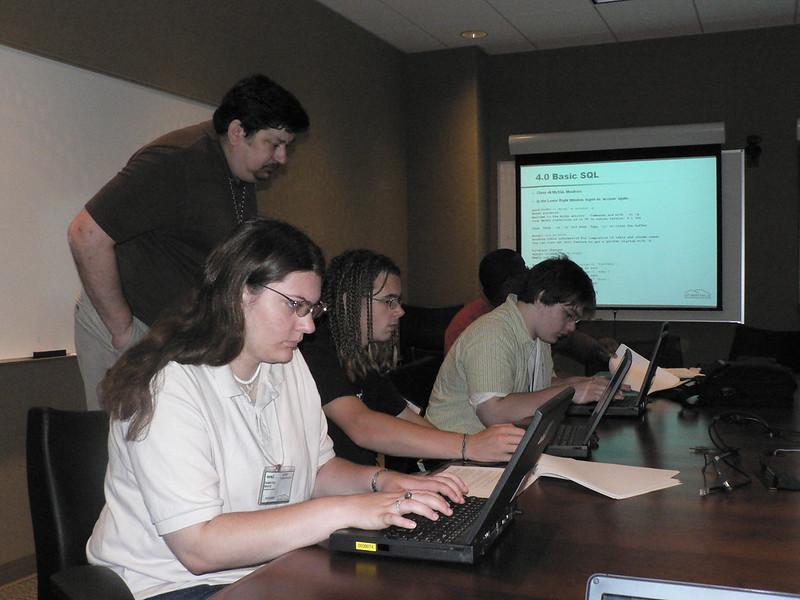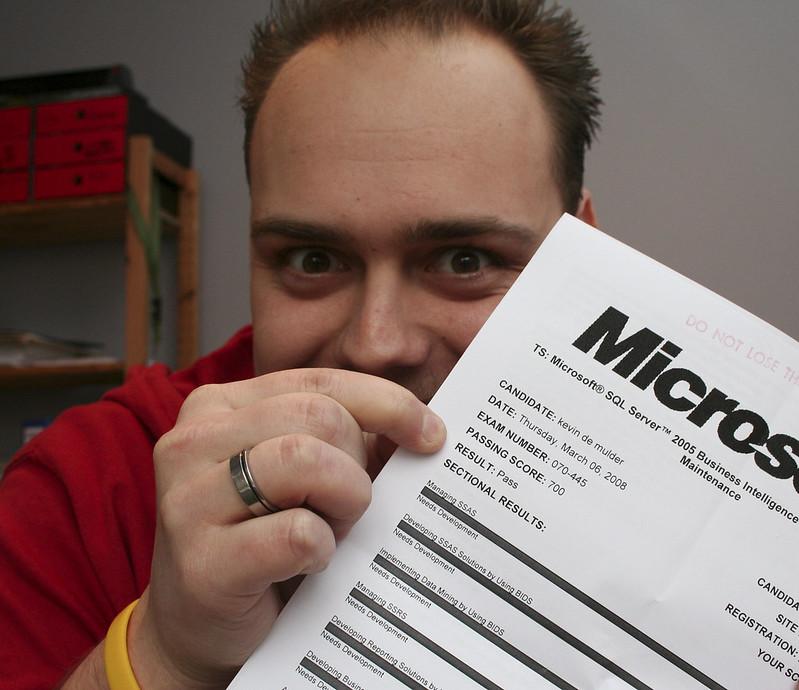If you are interested in software and data and want to become an expert in this industry, business intelligence development is an attractive field. Let’s learn how to become a business intelligence developer through this article!
Besides the specific steps to achieve the skills and requirements of this position, I will mention the job duties, similar careers, salary, and career path.
Keep scrolling to discover!
Who is a Business Intelligence Developer?
A business intelligence (BI) developer is a skilled pro who designs, develops, and maintains the systems and tools that enable companies to gather, analyze, and visualize data for informed decision-making.
Successful BI developers possess a combination of technical skills, including proficiency in:
- SQL
- Data modeling
- ETL processes
- BI tools
They also have excellent communication skills to bridge the gap between technical and non-technical teams.

What Do BI Developers Do?
As a BI developer, I am pivotal in transforming raw data into actionable insights. Here’s what I do:
- Data collection: I gather data from different places, like databases and spreadsheets.
- Data cleanup: Sometimes, the raw data I collect is messy. I clean it up and organize it to make it easy to understand.
- Data structure: I design a blueprint for how the data should be stored and used. It’s like making a filing system so everyone can find what they need.
- Database work: I manage the computer systems where the data is stored. I use SQL to talk to these systems and get the needed data.
- Reports and dashboards: I create visual reports and dashboards (charts and graphs) to help people understand the data quickly.
- Keeping data safe: I protect the data, especially if it’s sensitive, and ensure I follow the rules about handling data.
- Teamwork: I team up with BAs, data scientists, and end-users to know what they need from the data.
- Teaching and documenting: I write down how everything works and help others learn how to use the data tools.
- Learning More: I always keep learning about new data tools and tricks to do our job better.
My role as a BI developer is to help companies make sense of their data. I ensure it’s clean, accessible, and helpful for making decisions.

Where Do BI Experts Work?
BI experts work in various places. You can find them in big companies, where they study data to assist in making choices. They are also in demand in tech firms, banks, healthcare, and retail companies.
Many BI experts work as consultants, helping different clients. Because using data is crucial, even government and non-profit groups need them.
BI experts can work in offices, from home, or both (depending on the company and data needs). So, they have a wide range of workplaces and play a vital role in helping businesses and groups make informed decisions using data.
How To Become A Business Intelligence Developer
The following roadmap will give you ten steps to become a BI developer, including getting a degree, honing skills, learning tools, and more!
1. Get A Bachelor’s Degree
First, you should have a Bachelor’s degree in computer science, data science, or IT to have a solid knowledge and skills foundation when working as a BI developer.
Some BI jobs require you to have a Bachelor’s degree. So, having one can also help you earn more and move up the career ladder in BI.
In this degree program, you’ll pick up technical skills, especially SQL, to work with databases. Besides, you will learn to solve tricky problems and think logically when working with complex data in BI.

2. Consider Bootcamps and Online Courses
Besides a degree program, considering Bootcamps or online courses is a great idea if you want to learn more about the field. Here’s why it makes sense:
- Focused learning: Bootcamps and online courses are targeted training programs that teach you exactly what you need to know for BI work.
- Quick progress: Bootcamps are intense and short. So you can learn advanced BI skills quickly. Online courses let you study at your own speed, which is super flexible.
- Hands-on practice: These programs usually give you practical experience. So you’ll know how to do the job, not just talk about it.
- Pick your specialty: You can choose courses that match what you’re interested in within BI, whether working with data, making reports, or something else.
- Stay updated: BI is changing. Online courses and Bootcamps often keep their material up-to-date, so you’re learning the latest trends.
Just remember, research and pick good courses or Bootcamps that give you a recognized certificate. Some well-regarded options are Coursera, edX, Udemy, DataCamp, and General Assembly.
3. Hone Data-Related Skills

To become a successful BI developer, you must focus on improving your data-related skills, and one of the most essential skills is SQL.
I recommend beginning with tutorials or books about SQL. Learn the basic commands and how databases work.
You can also install a database program on your computer (like MySQL or PostgreSQL) and create your own practice databases and tables.
If you are not good at self-study, you should sign up for online classes that offer SQL courses with exercises. When familiar with the basics, you should explore more advanced SQL topics like joins, subqueries, stored procedures, etc.
4. Learn Programming Languages
Besides data-related skills, you need to learn programming languages to:
- Work with data
- Create systems
- Build BI solutions
Here are some vital languages to focus on:
- SQL is the language of databases. It helps you ask for and manage data. You’ll use SQL in BI to get the data you need for reports and analysis.
- Python is for handling data, making scripts, and automating tasks.
- R is for stats and making charts (in-depth data analysis).
- Java is handy for building BI tools and connecting them to other systems. I often use it behind the scenes in BI projects.
- JavaScript is essential for web-based BI. It helps make interactive dashboards and web apps.

5. Learn To Use BI Tools
The next step to becoming a skilled BI developer is to learn a variety of tools that are widely used in the field, including:
- Tableau: It helps you make clear charts and graphs to show data.
- Power BI: This tool, made by Microsoft, is for visualizing and analyzing data.
- QlikView/Qlik Sense: These tools are for exploring data and making interactive apps.
- Microsoft Excel: Excel is widely used for simple data work, like calculations and easy analysis.
- SAP BusinessObjects: It’s a suite of BI tools for reporting and managing data in big companies.
- MicroStrategy: This tool has reporting, analytics, and mobile features, and it can handle large-scale work.
- IBM Cognos: Known for its reporting and data exploration features, it’s often used in big businesses.
- SAS BI: SAS focuses on advanced analytics, reporting, and data visualization.
You can start with online tutorials or enroll in courses dedicated to the specific BI tool. Then, practice using these tools by working on sample datasets and projects.
6. Get Relevant Certifications

Getting certifications is a smart move because some employers really like it when you’re certified, and they might pay you more or give you a promotion. Here are some BI certifications to think about:
- Microsoft Certified – Data Analyst Associate: It is about using Microsoft tools like Power BI and Excel to work with data.
- Tableau Desktop Specialist/Associate: These show you’re great at visualizing data using Tableau.
- Qlik Sense Business Analyst: It proves you can handle data, make models, and analyze with Qlik Sense.
- CBIP: It covers many BI areas, like data analysis and management.
- Oracle BI Foundation Suite 11g Certified Implementation Specialist: It says you’re a pro with Oracle’s BI stuff.
- SAP Certified App Associate: SAP BusinessObjects BI Platform: It teaches you how to use SAP’s BI tools.
- IBM Certified Data Architect: Big Data: It is a choice if you work with IBM’s BI and data.
When picking certifications, choose the ones that match what you want to do in BI. Remember to combine these certifications with real-world experience and keep learning to become a top-notch BI developer.
7. Work On Relevant Projects

Projects let you put into action what you gain from the above steps. It’s where you really learn how to do things. So, it is a necessary step in this process.
Projects often mean diving deep into specific BI tools or areas. They can also help you make connections with other people in BI.
If you’re new to BI, you should begin with simple projects and work up to bigger ones. Use real data whenever you can. It makes your learning more real and practical.
When you finish projects, you can build a portfolio of your work. It’s like a show-and-tell for your skills that you can show to employers.
Working on projects in BI isn’t just about gaining skills. It’s about proving you can apply those skills to real-world situations. This practical experience is golden when looking for a job or moving up in the BI world.
8. Gain Practical Experiences

Regarding getting real-world experience, internships are awesome for this because they give you a chance to learn and see the working process as a BI developer.
During internships, you work on real BI projects, meet experts in the field, and learn how BI tools and processes. This experience helps you understand BI better and makes you better at solving problems and working with others.
Internships also open doors for future jobs. When you make connections in the industry and put your internship on your resume, it makes you more attractive to employers when you’re looking for a full-time BI job.
9. Build A Portfolio
One thing that is indispensable when applying for a BI developer position is a portfolio. Through your portfolio, the employer will know whether you have ever done any projects related to your current job and will appreciate it if you have.
So, choose projects related to the skills that the companies are finding and create an impressive portfolio. Remember not to put too many projects in it. Instead, keep the number of projects around 10.
I recommend referring to some portfolio samples of BI seniors to create a clean, beautiful portfolio with all your outstanding skills!
10. Build A Network

The most effective way I use to improve my BI skills is to connect with other experts and developers in the industry.
I’ve joined online expert groups and BI conferences and connected with people willing to share their experiences. I’ve received a lot of advice and invitations to collaborate.
So, if you still don’t have a professional network of your own, create one and contribute to it! It is a powerful weapon for your career!
5 Careers Similar to BI Development
The following careers are similar to BI Development and may interest you if you like working with data and technology:
- Database administrator: You will handle databases, ensuring data is organized for easy access, which is vital for BI.
- Computer systems manager: You will oversee IT parts, including BI systems, to ensure they help the company.
- Enterprise architecture: You will plan how a whole company’s systems work, often including BI for smarter decisions.
- Data scientist: You will dive into data to find insights and trends, an essential part of BI.
- Software developer: You will create apps, like BI tools, for data analysis and reporting.
Salary and Career Path
The salary of BI developers varies based on experience, location, and industry. In 2024, a BI developer earns between $78,000 and $119,000 per year, including all components of their pay.
Regarding career growth, BI developers often start as junior BI developers or analysts. With time, they move up to senior roles, where they handle more complex projects and might lead teams.
Further advancement can lead to roles like BI manager, BI architect, or BI director, offering more responsibilities and higher pay. It’s a career path with good earning potential and room to grow.
Conclusion
The sharing about how to become a business intelligence dev above has shown you a specific roadmap about the requirements you need to achieve in this process.
Hopefully, you will become a BI developer providing helpful data solutions for your business! If you have difficulties going through these steps, please comment so I can assist you. Thank you for reading!
